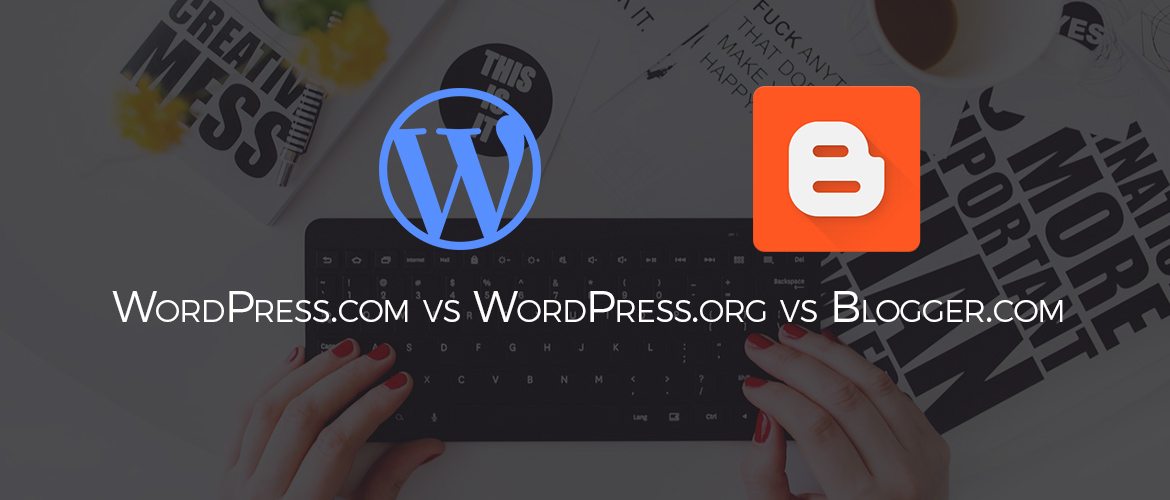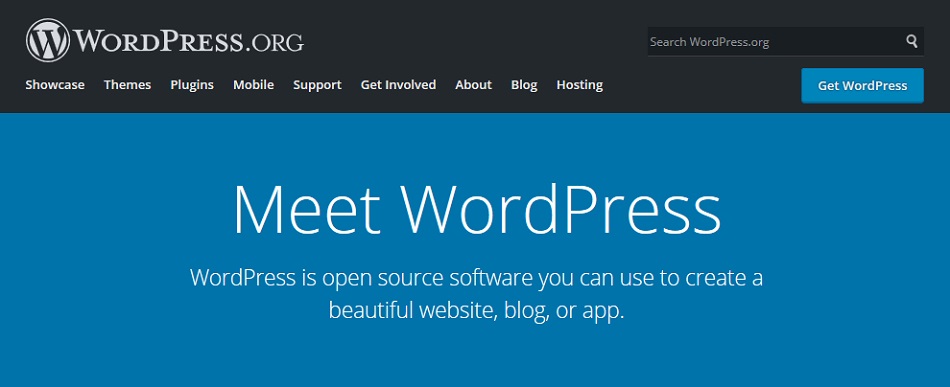There are a number of options for one to choose from when starting a blog. Most times, the service you end up choosing would depend to a large extent on several factors. By considering those factors, it is possible for you to subscribe to the right platform and optimize the needed results.
Some of the factors to be considered include target audience, content, and the motive behind running such a website. There are a number of blogging platforms that are geared towards education, others are perfect for entertainment. Still, some platforms can multitask while using a number of extensions (plugins) to ensure smooth running
In this article, we would be looking at three of such platforms. We would examine their features, which would help us understand the most optimal way to use them.
Meeting the Platforms
WordPress.com is an all-rounder blogging portal owned and created by Automattic. It is one of the popular blogging platforms, mostly used for personal blogs. It has a wide range of extensions and plugins that could serve in transforming the platform into more than just a blog page.
WordPress.org, however, is like a parent version of the above platform. An estimated 32% of websites use this software, including news sites and entertainment hubs, as well as the website you’re reading this on. It’s also a popular software used in the creation of various apps including games and banking apps.
Blogger.com is also a well-known platform, and one of the oldest blogging platforms around. It is very easy to use. Developed by Pyra Labs and later acquired by Google in 2003, the platform has served millions of personal bloggers, including students, due to its relatively simple nature and free access.
Our analysis is based on these three platforms. By looking through what each of them offers, it becomes easier for us to decide which platform is suited best for whichever purposes.
WordPress.com
WordPress.com is a very versatile portal used by millions of bloggers worldwide. It can easily be used by the beginner, as well as advanced bloggers. One of its really useful features is found in the ability to own multiple domains for one user.
Another feature that can be found is the link management, which is mostly integrated. WordPress. com is also search-engine friendly, and there are features that allow regular quotes to be converted to smart quotes.
WordPress.com is useful for study-related blogs, as well as for beginners who are just starting out in the venture of owning a personal domain. Thanks to its free domain, it offers a sense of flexibility plus the ability to customize one’s personal space.
WordPress.org
With a third of web processes occurring on WordPress.org, there is no doubt about the versatility of the portal. However, WordPress.org is mostly a building platform, since it’s known to support application development. Therefore, it would be the most suitable for game development, and the development of different apps for banking, communication, and entertainment. It might also be suitable for developers of themes, widgets, and graphic content (clip art, wallpapers).
In general, WordPress.org is preferred by many users for its easy-to-use features, plus the ability to create limitless projects. In addition, its self-hosting services are easy to go through. Through constant upgrades, this platform continues to be relevant per time. This is a great plus.
Most people choose WordPress.org over WordPress.com because of the full control users get with WP.org. When you’re hosting WordPress yourself, you get full control over how your website looks, behaves, and everything else. While with WP.com, you’re quite limited.
Blogger.com
Blogger.com is a bit of an ‘old school’ platform. Similar to its counterparts, the portal is very versatile, with initial access provided free of charge. A fee applies to those who would want to purchase their own domain (username).
Blogger.com is also a good place for hosting, but this feature is not explored that much. This is because there is a notion among audiences that blogspot extensions are only used by amateurs. Perhaps, this explains why it is not constantly used.
Blogger.com can be considered as the starting hub for beginner blogs, as well as the perfect platform to establish a writing service. Customization is also a popular feature to the portal, with tools available at hand to meet all customer needs.
But there’s a snag: because this platform was developed for beginners, it has limited customization features, which makes it less favorable than WordPress among professional and well-experienced bloggers. If you are planning to have a first-hand experience of owning your own space, without further advancements, then this is the space for you. However, if you wish to develop beyond the scope that you are, it would be advisable to switch to another platform where you would have the option of choosing your own domain name and full control over your website.
That’s the gist of it. There’s more to learn about each platform, but you get the basic idea. So in conclusion, if you want full control over your website and buying your own web hosting, go with WordPress.org. If you’re a beginner that just wants an easy way to create a website/blog go with WordPress.com or Blogger.com
In an era where content has to be interactive, it is very important to consider all technical properties and weigh the cost options of every system available, to ensure maximum use of whatever services that are offered to you.
About the Author
This article was submitted to us by a third-party writer. The views and opinions expressed in this article are those of the author and do not reflect the views and opinions of ThisHosting.Rocks. If you want to write for ThisHosting.Rocks, go here.
The article is provided by the authors from the au.edusson writing service.








